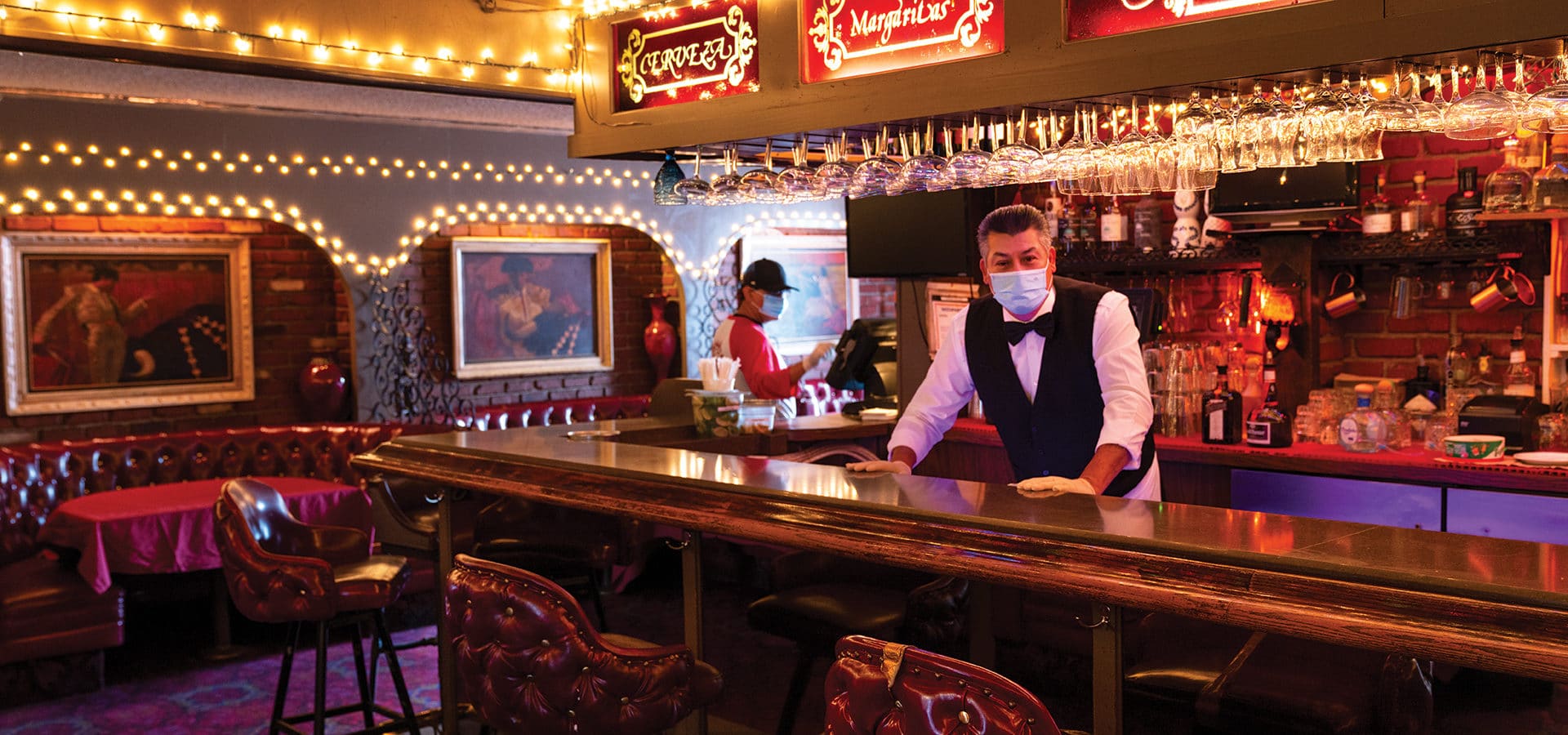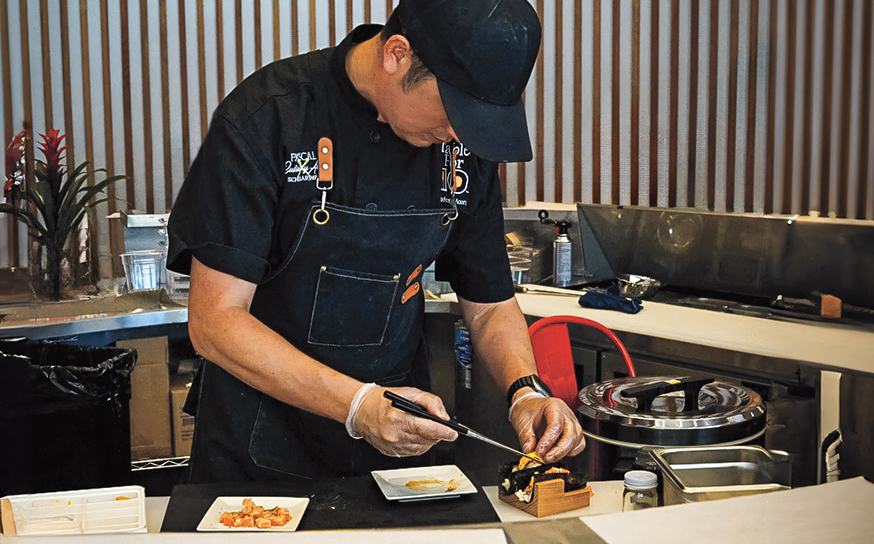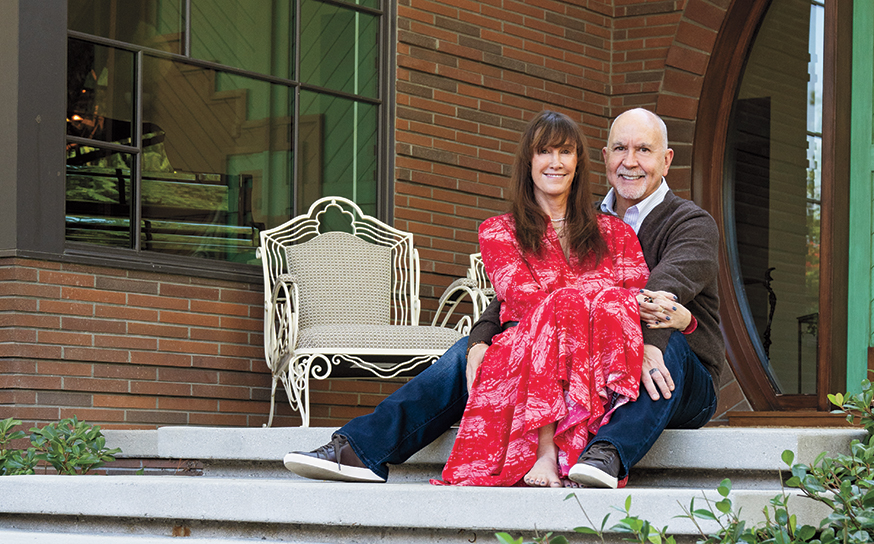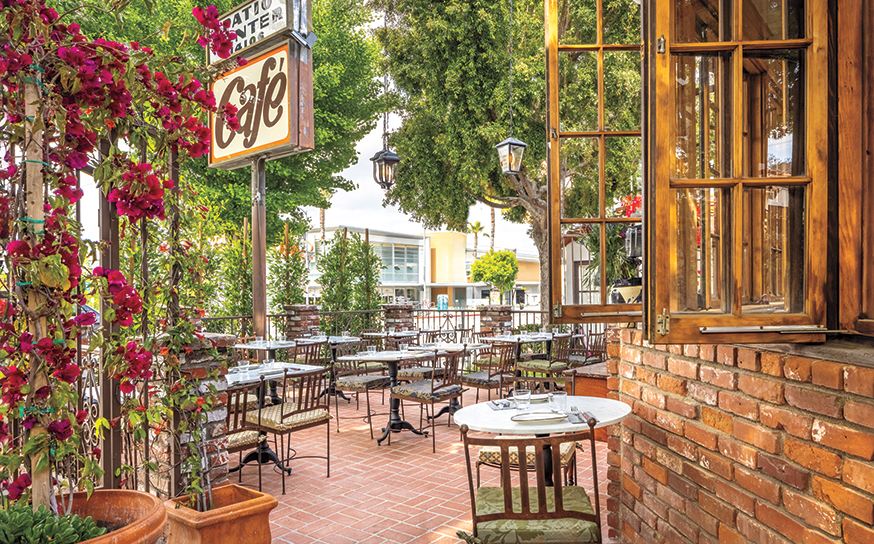The Valley’s Oldest Eateries Show Why They Are Still Standing
The show must go on.
-
CategoryEat & Drink, People
-
Written byJean Trinh
-
Photographed byShane O’Donnell
It’s been an emotional roller coaster ride for Valley restaurant owners, who have had to adapt to dynamic pandemic regulations for months, with no end in sight. They’ve had to take extra precautions to make sure their customers and employees are safe, and at the same time pay bills, rents and staff with lowered profit margins—at a time when profit margins were already an issue. Restaurateurs have faced challenges in recent years with an increased minimum wage, high rental rates, and mandated health insurance coverage for employees. Nevertheless, some are figuring out a way to forge ahead.
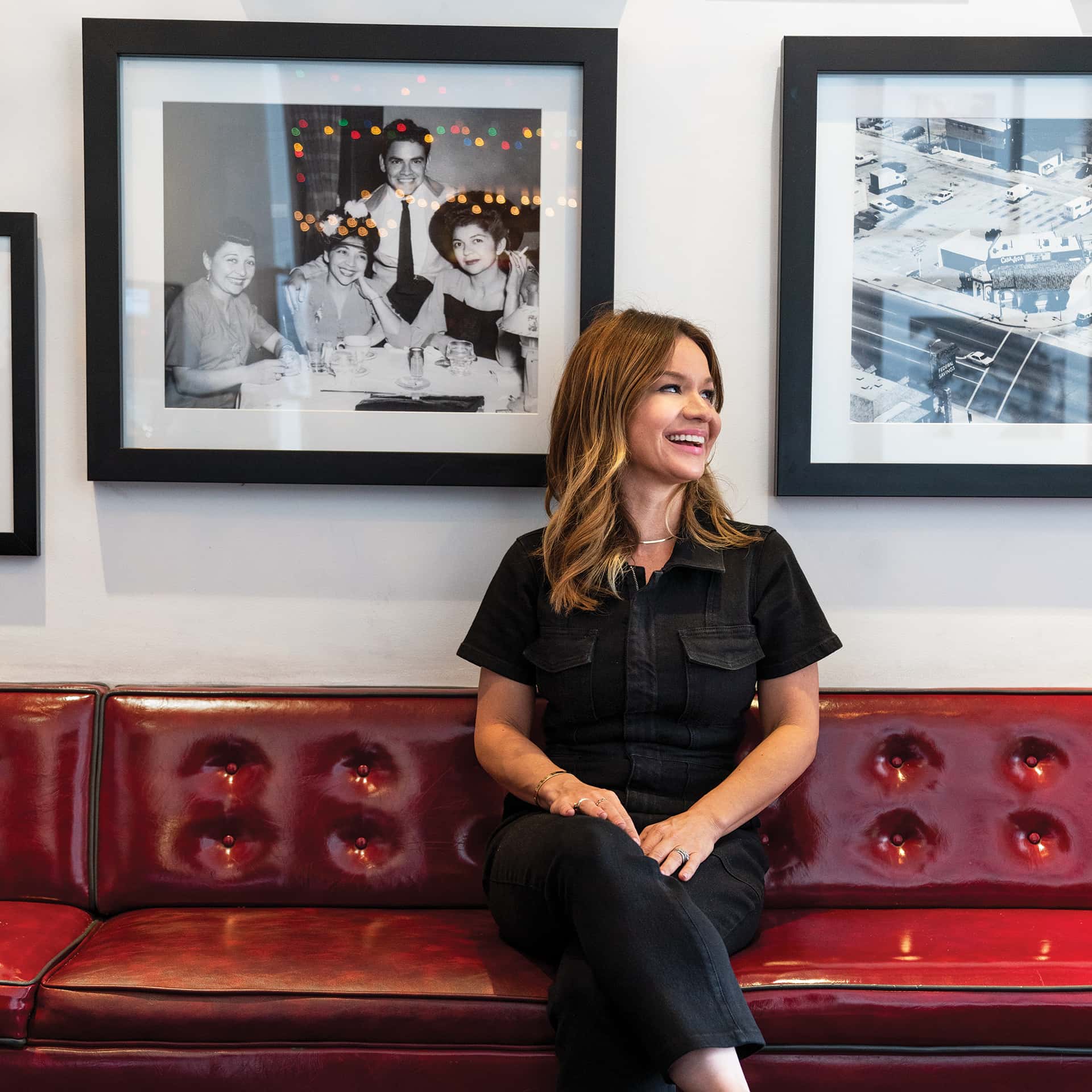
Christy Vega at Casa Vega
Casa Vega
It was a big shock for Casa Vega owner Christy Vega when Los Angeles County ordered restaurants to halt in-person dining in mid-March to slow the spread of COVID-19. For nearly 65 years, the Mexican restaurant in Sherman Oaks had been the type of classic joint known for friendly table and bar service from familiar staff members who had been working there for decades. But the restaurant wasn’t set up for online ordering or delivery services.
Christy, 43, ended up closing Casa Vega for six weeks. The second-generation owner waited until she could get her Paycheck Protection Program (PPP) loan funded, brought back her employees, and then reopened as a drive-through on May 2. It was a “smashing success,” she says.
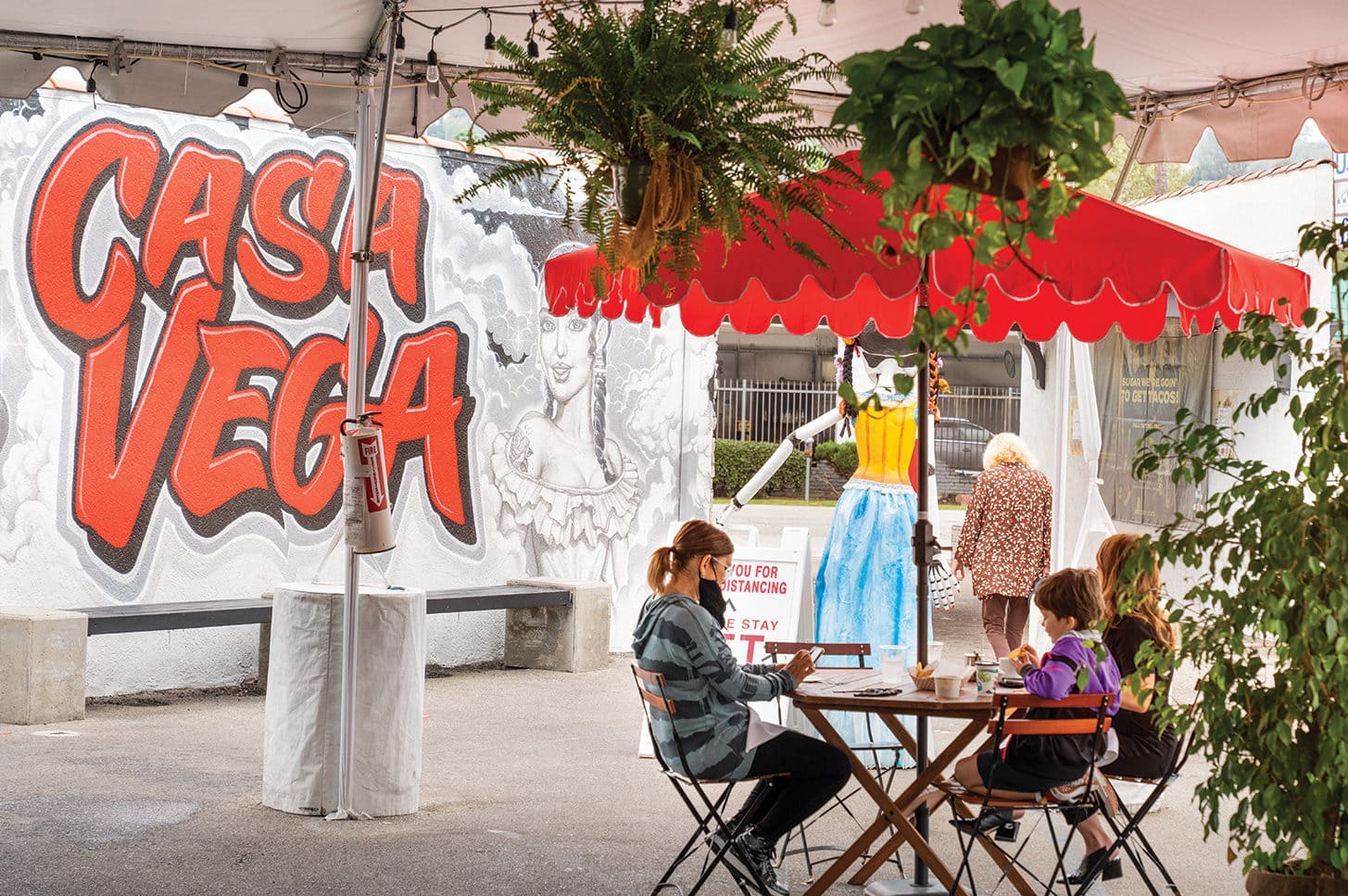
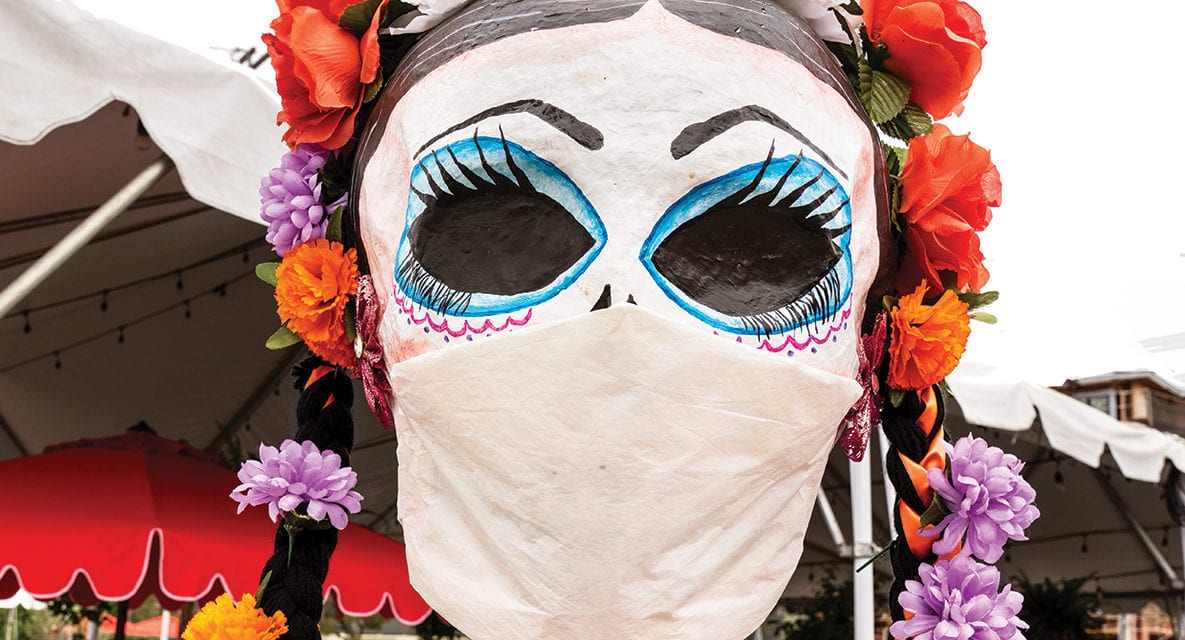
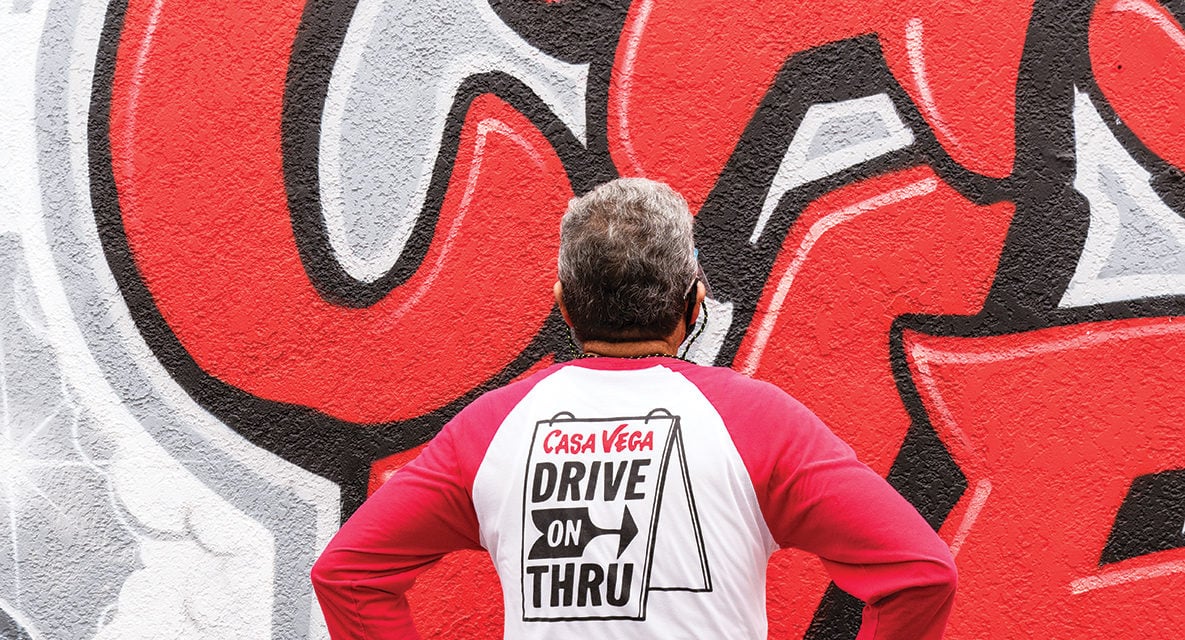
When dining was allowed again, Christy transformed two of her 6,000-square-foot parking lots into outdoor dining patios. She beautified them with white pop-up tents, string lights, and hanging and potted plants; she wanted to give guests a comfortable place where they could have a margarita and de-stress. Casa Vega started offering takeout and delivery for the first time in its long history.
“I think the biggest thing about this is that it’s not one simple adaptation; it’s constant pivoting,” Vega says. “You might as well just stay on your heel and keep turning because everything changes minute by minute.”
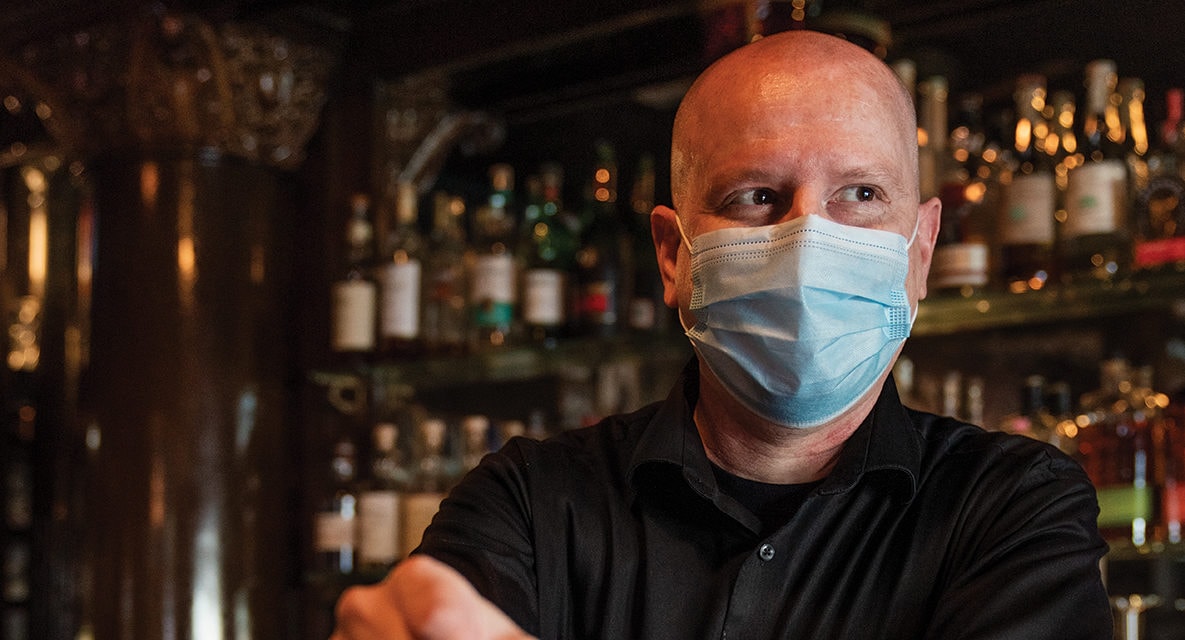
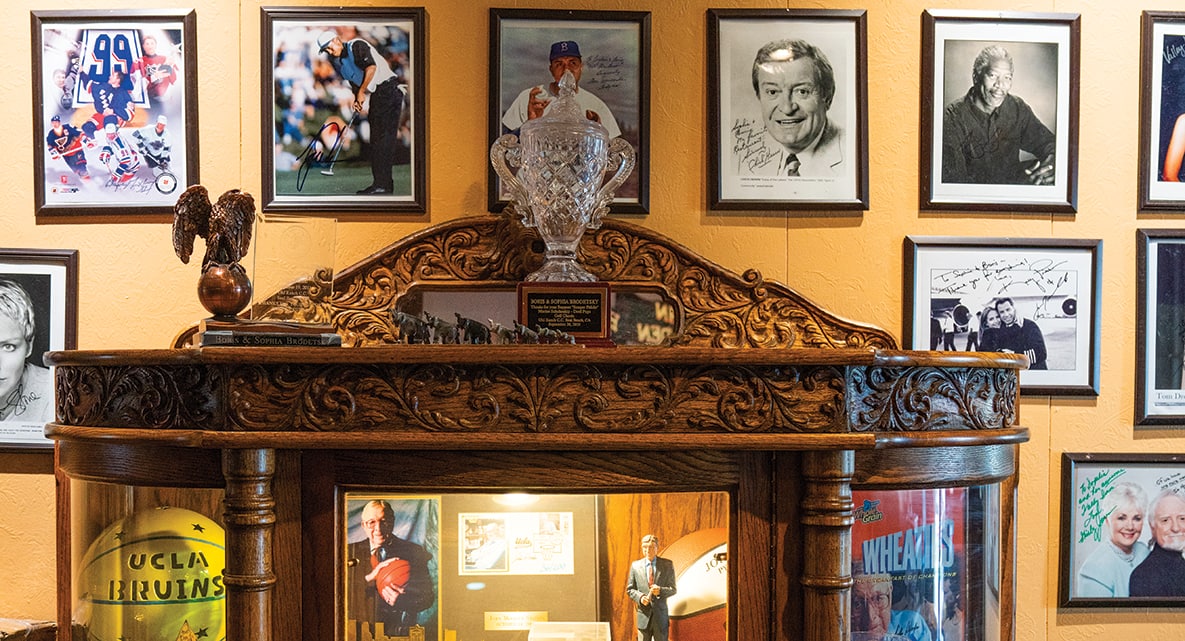
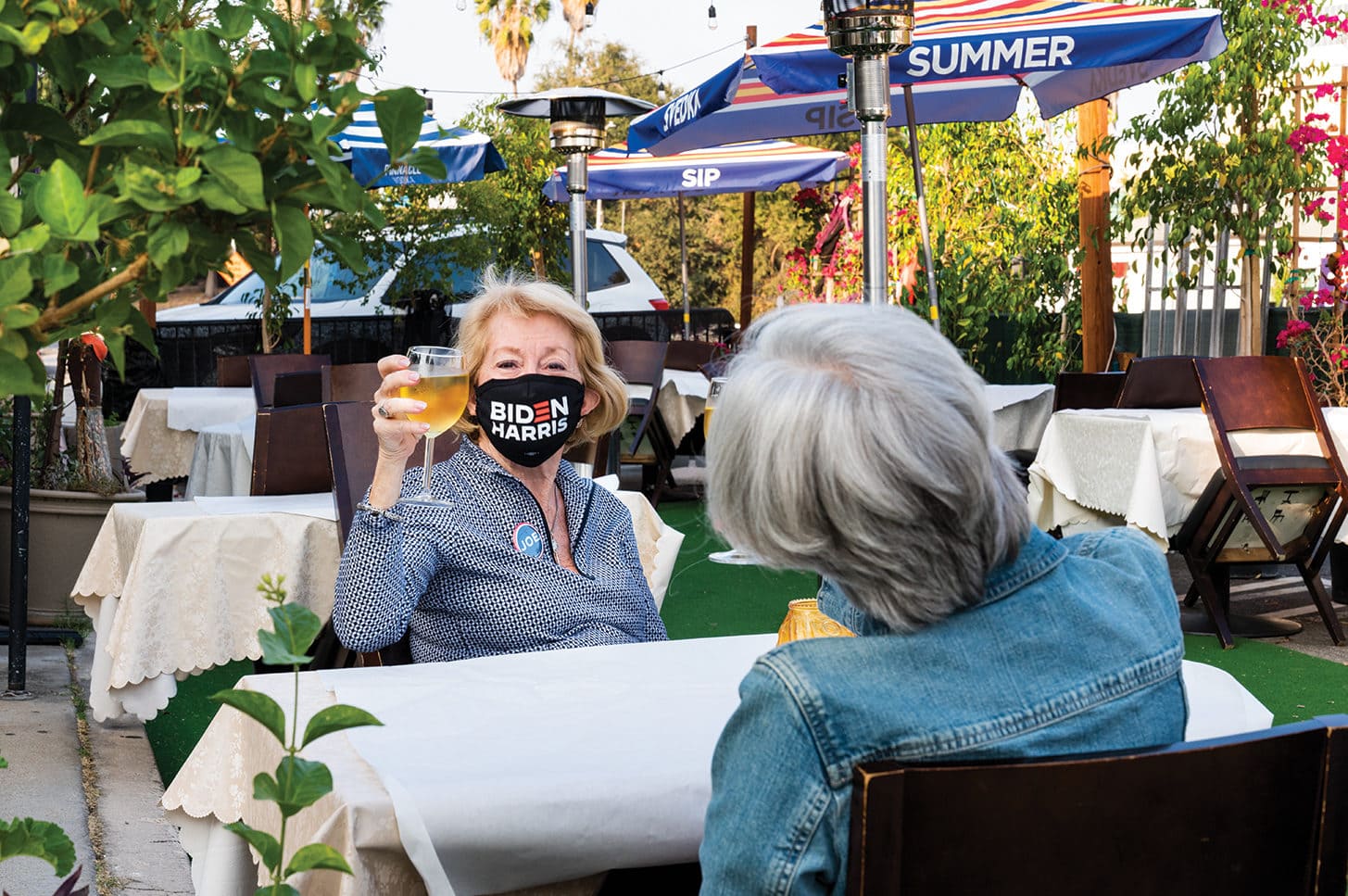
Valley Inn
Sophia Brodetsky, who owns the 73-year-old Valley Inn restaurant and bar in Sherman Oaks with her husband, Boris, describes the situation as devastating. “Trust me, I’ve been through a lot of tough times, from being a Russian immigrant and coming here with no English to overcoming it and working and getting a job,” Sophia, says. “There has been nothing like this before.”
Sophia felt completely abandoned by her bank, Wells Fargo, when she tried to apply for a PPP loan. She ended up having to hire some new employees because some servers who were in the higher risk group for COVID-19 made the hard decision to not return to work. She spent thousands of dollars adhering to new indoor dining regulations only to have the county end that July 1. Valley Inn, which offers takeout and delivery, was eventually able to convert some parking spaces into outdoor dining.
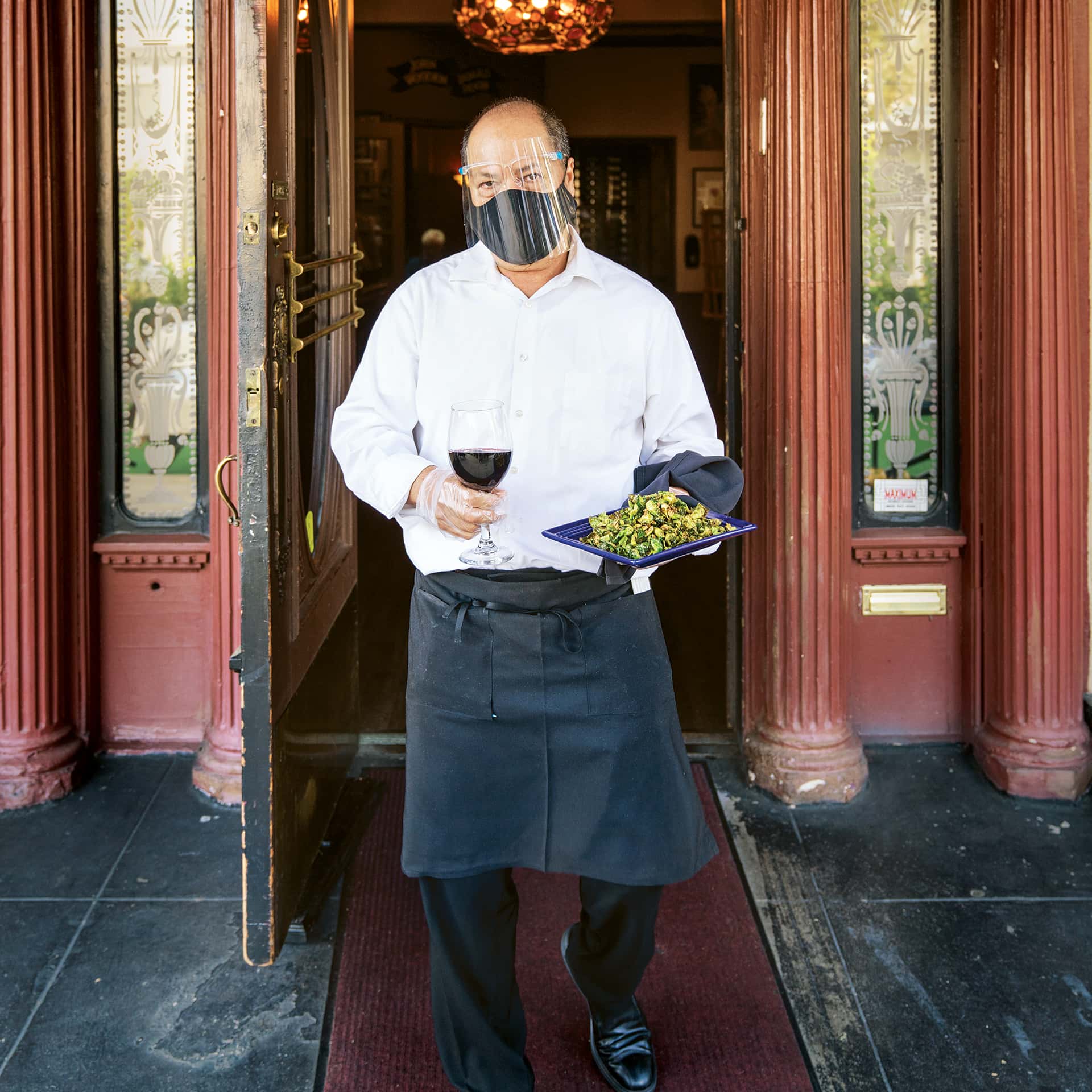
Boris Brodetsky at Valley Inn
In all this darkness, the Brodetskys were lifted up by loyal customers who had become their friends over the last 22 years, ever since the couple took over Valley Inn. Customers were constantly checking in on them. Some would leave anonymous notes with money to keep the business going. One customer connected them to a company that helped them secure a PPP loan.
“For the first two or three weeks, I would get up and start crying because of the text messages and phone calls that we would get from customers,” Sophia shares. “It was really touching.”
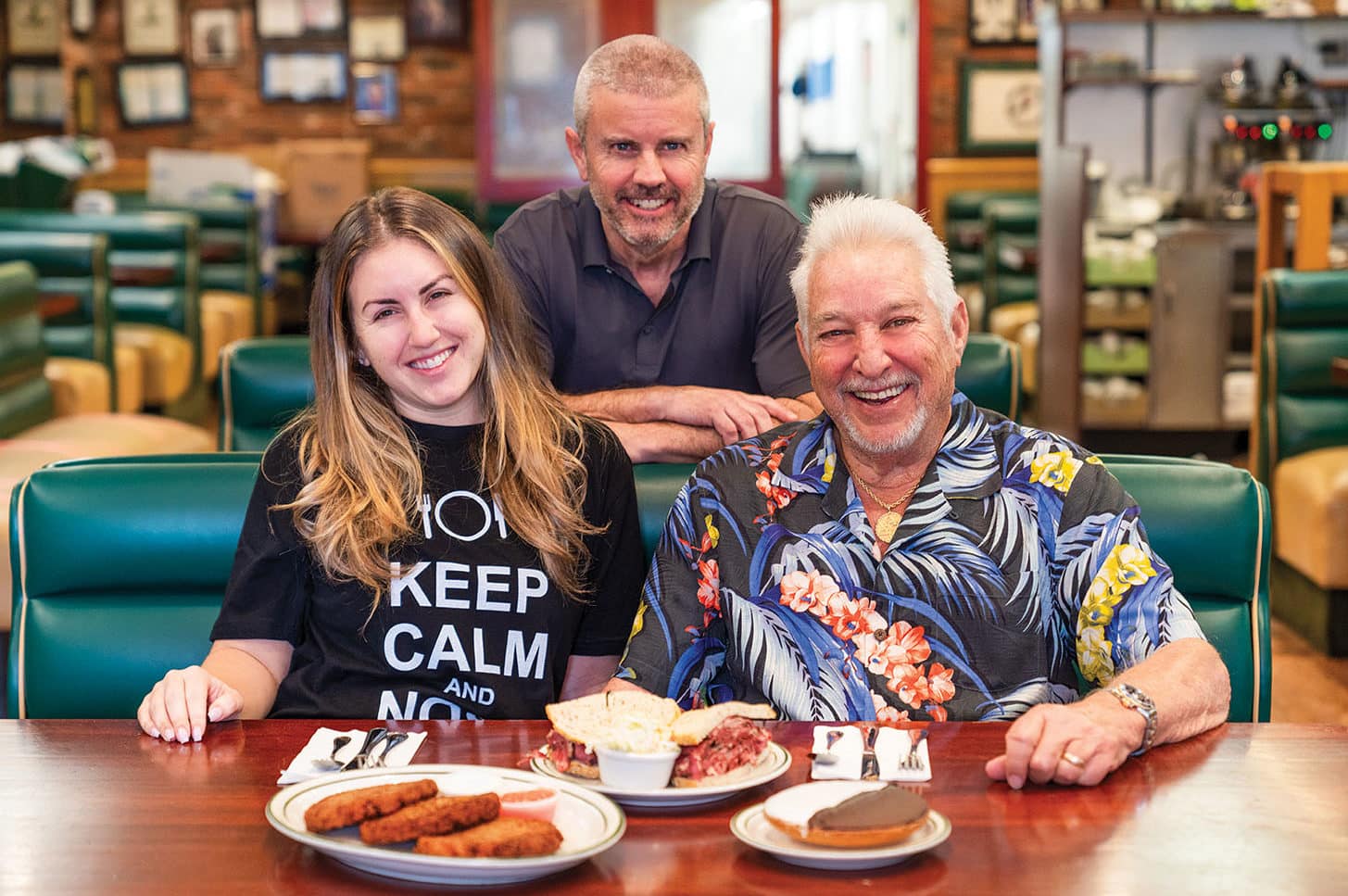
Taylor, Brent and Ron Peskin at Brent’s Deli
Brent’s Deli
For longstanding restaurants like these, there’s a strong bond between the generations of customers and owners. Ron Peskin, the 79-year-old patriarch of Brent’s Deli, bought his Northridge restaurant in 1969 and opened a second location in Westlake Village in 2015. His son Brent, daughter-in-law Dori, and granddaughters Taylor and Jordan now run the two outposts. Ron still works at least five days a week. On any day of the week, a guest can show up at the restaurants and a member of the Peskin family will be there, adding to the homey feeling of the deli.
“I love carrying on my grandfather’s legacy,” says 28-year-old Taylor Peskin. “He always says, ‘I didn’t think when I bought this place for $1,800 50 years ago that it was going to live to see three generations, to have my grandchildren working here full-time.’”
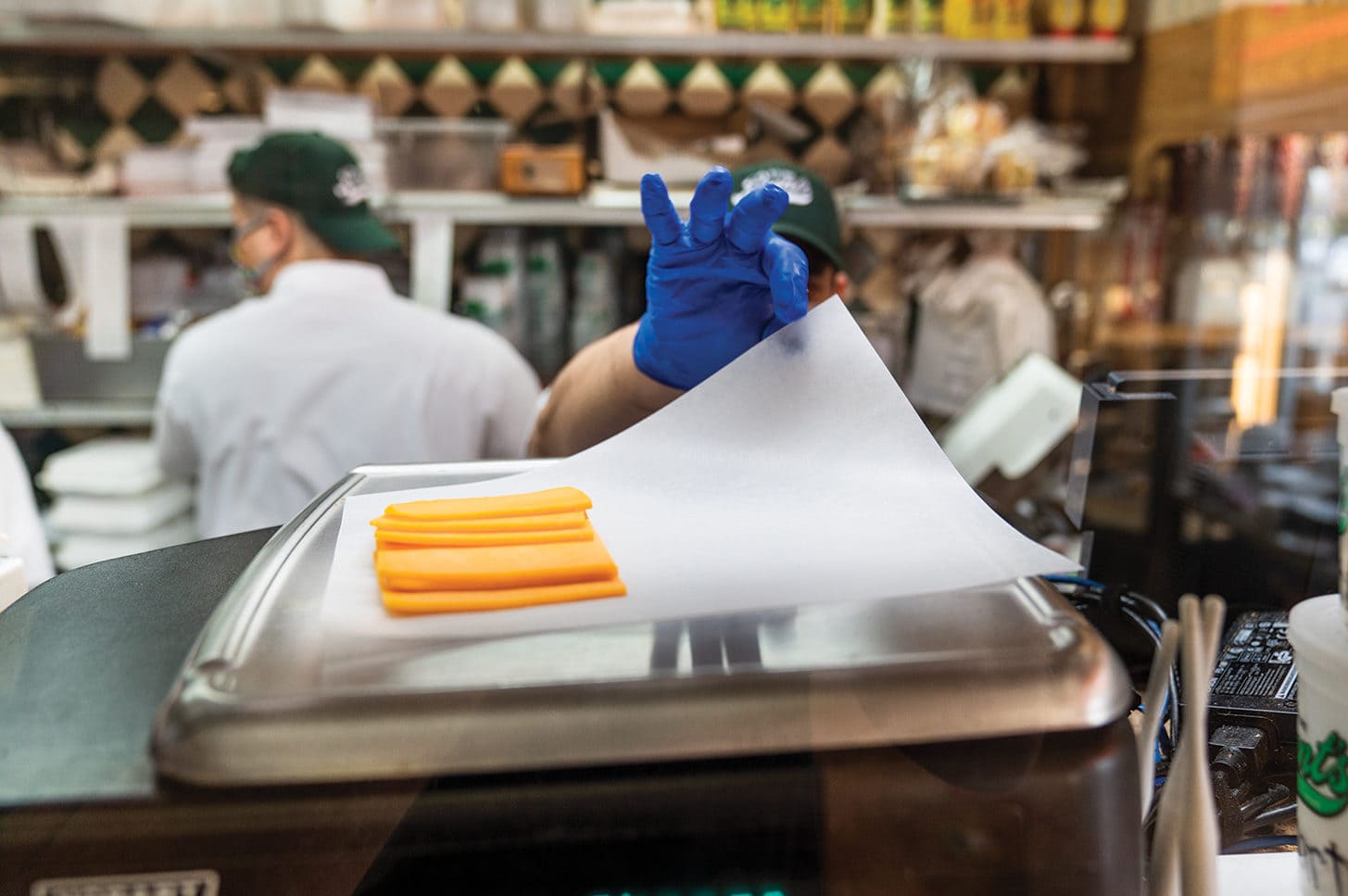
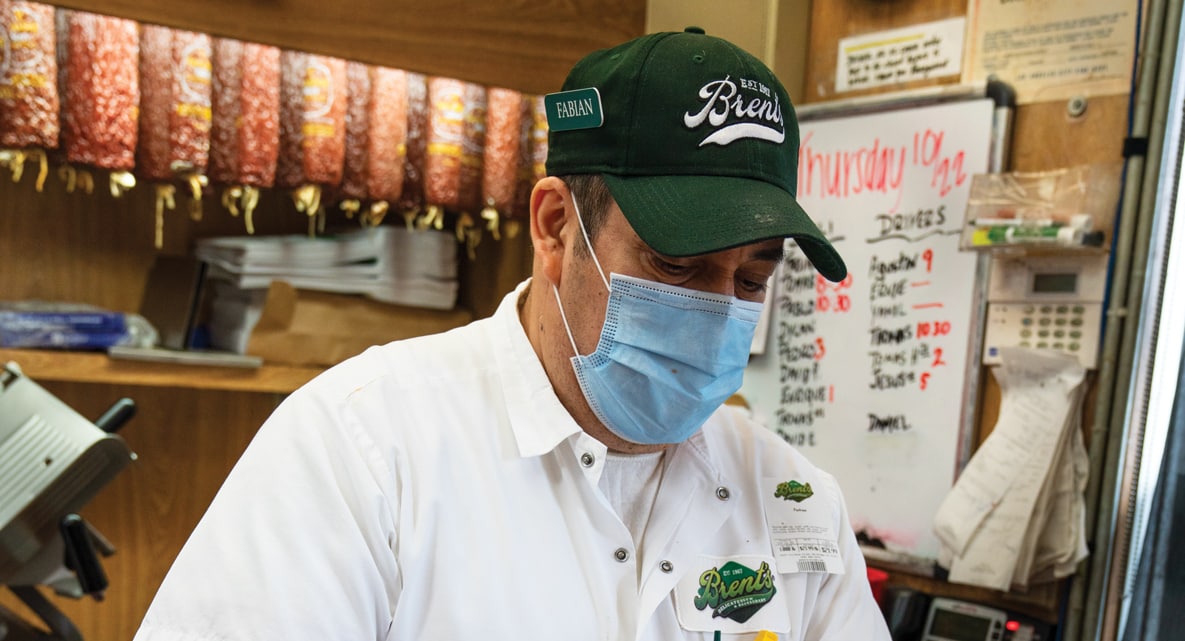
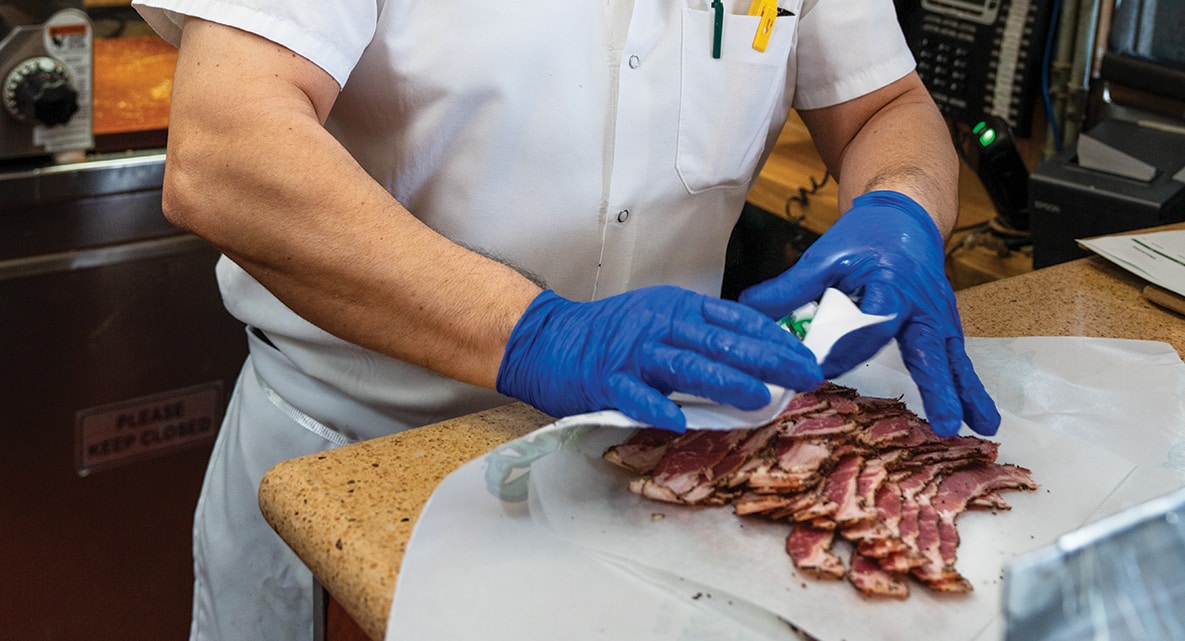
Taylor Peskin, who has early memories of standing on milk crates to work the cash register, credited Brent’s Deli’s regulars and staff—some of whom have been working there for over 20 years—for keeping their business open during these difficult times.
She also feels lucky that they had already established a good reputation for takeout and delivery prior to the pandemic, and even had refrigerated trucks delivering all over Southern California. Brent’s Deli was able to bring back many of its employees by participating in Governor Gavin Newsom’s Great Plates program, a meal delivery service for California’s seniors and adults who are at high risk for COVID-19. While they were initially hit by the drop in their catering business, they’re now starting to see sales rise again.
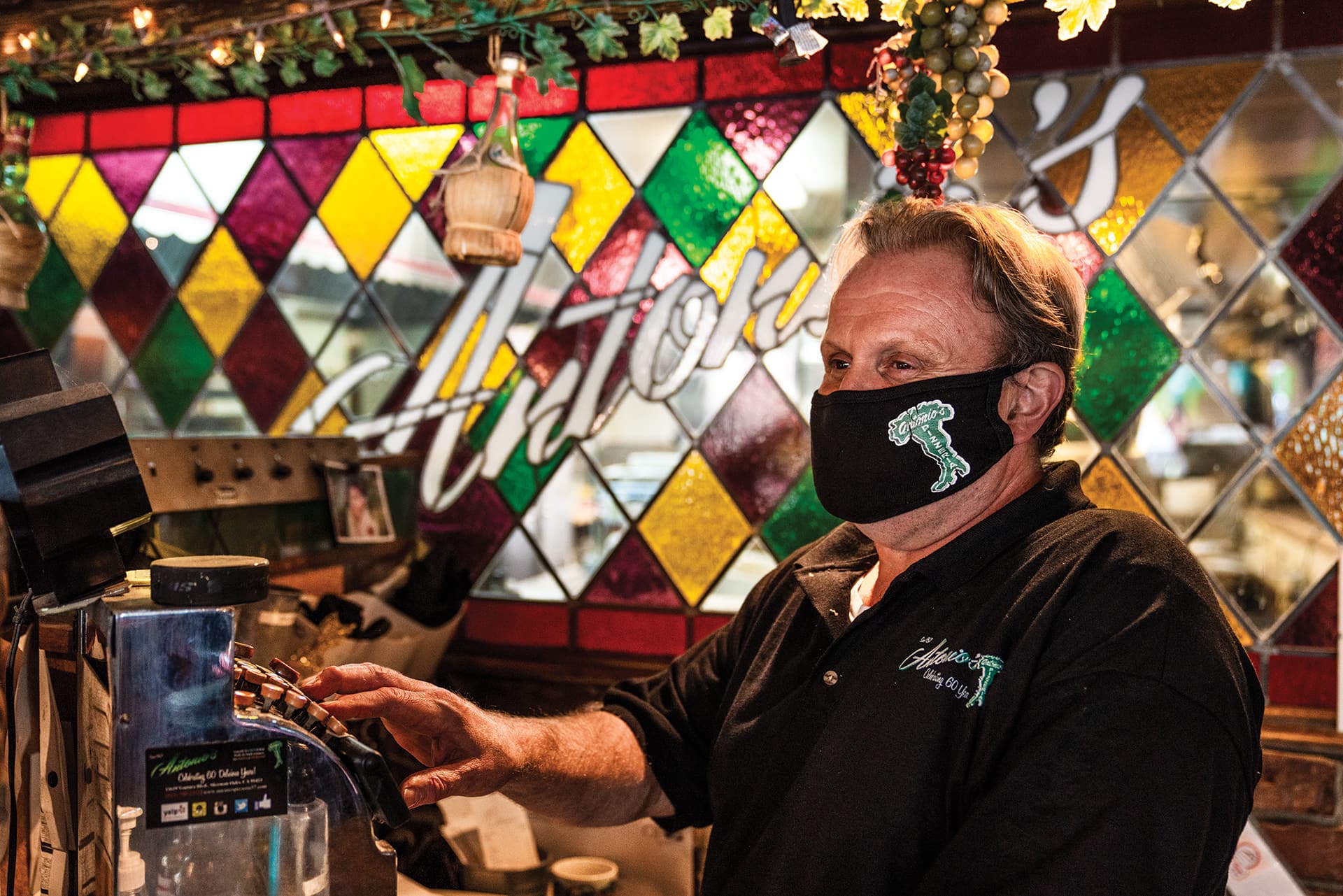
Steven Lunardon at Antonio’s Pizzeria
Antonio’s Pizzeria
Alexandra Lunardon, who owns the 63-year-old Antonio’s Pizzeria in Sherman Oaks with her brother Steven, also felt like they were in a good place when the pandemic hit. They had an updated website, had already been doing their own delivery, and were on third-party delivery apps. During the pandemic, Alexandra came up with the idea of using her restaurant’s kitchen to create a separate dessert concept that delivers late night. She said they’re now selling as many desserts as they are pizzas.
“Every week you have to figure out what’s going on with the trends and see if you can fit into them somehow,” Alexandra says. “You have to be creative, especially right now with what’s going on with COVID.”
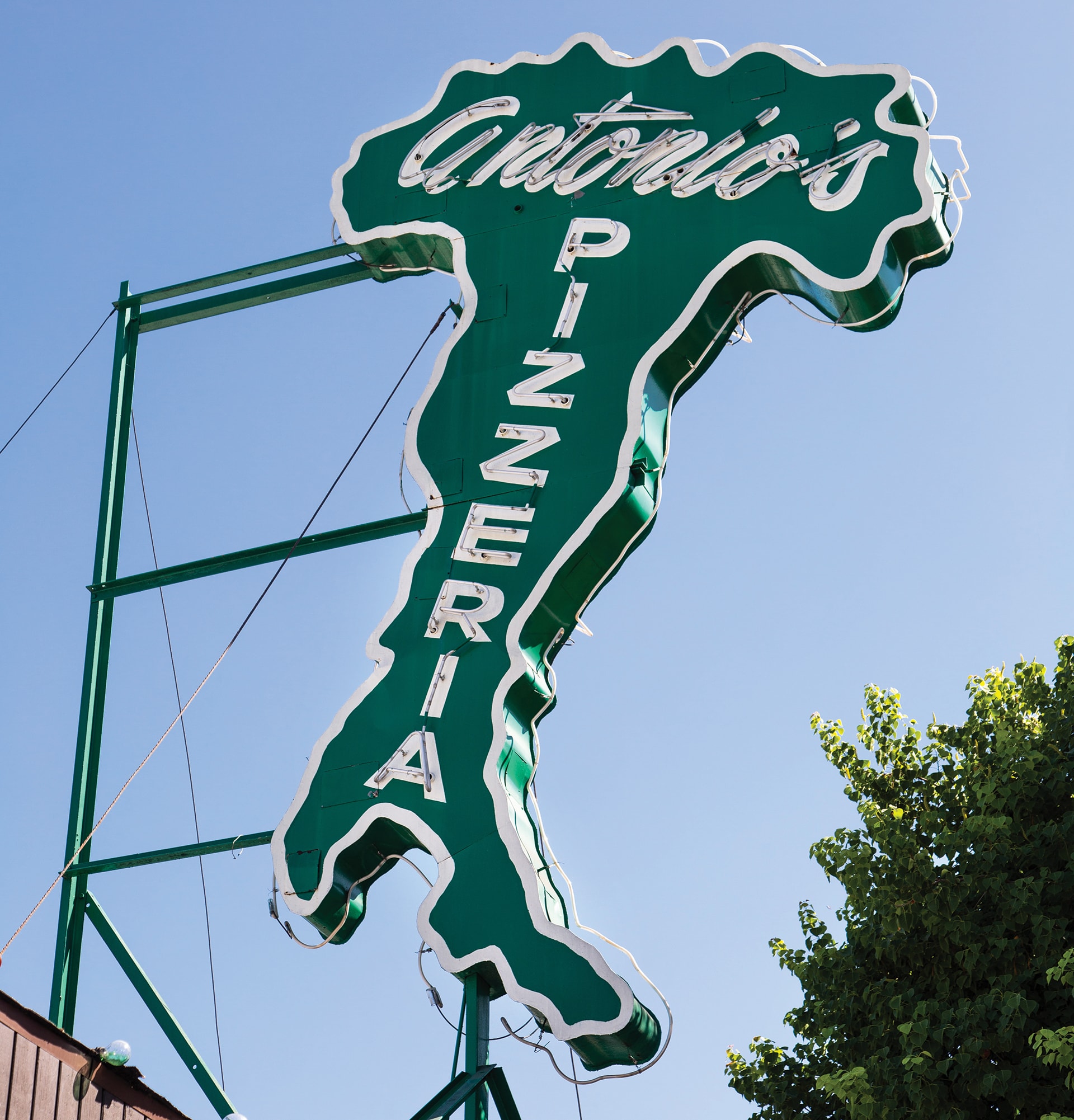
Alexandra says that while third-party delivery apps bring new customers to her restaurant—something she considers to be marketing—they cut into her profit margins because of their high fees. She doesn’t feel it’s right to increase her prices. That’s because of her “small-town mentality” when it comes to her eatery; after all, a lot of her regulars are already struggling, yet are helping her by ordering from her restaurant. She wants to help them back.
She’s been running Antonio’s Pizzeria with her brother since she was 25 and he 24. Their late Italian father, Fabiano Lunardon, had saved enough money as a shoe repairman to buy the restaurant from its original owner, Antonio Miceli, in 1988. It was a legacy for his children, and he was hands-off in the business.
Alexandra felt her father, whom she calls her hero, entrusted the restaurant to them when they were so young because they were mature for their age. The family immigrated from Argentina in 1972 without any of them speaking English. Alexandra was 9 at the time; her father had to start his life over at 42.
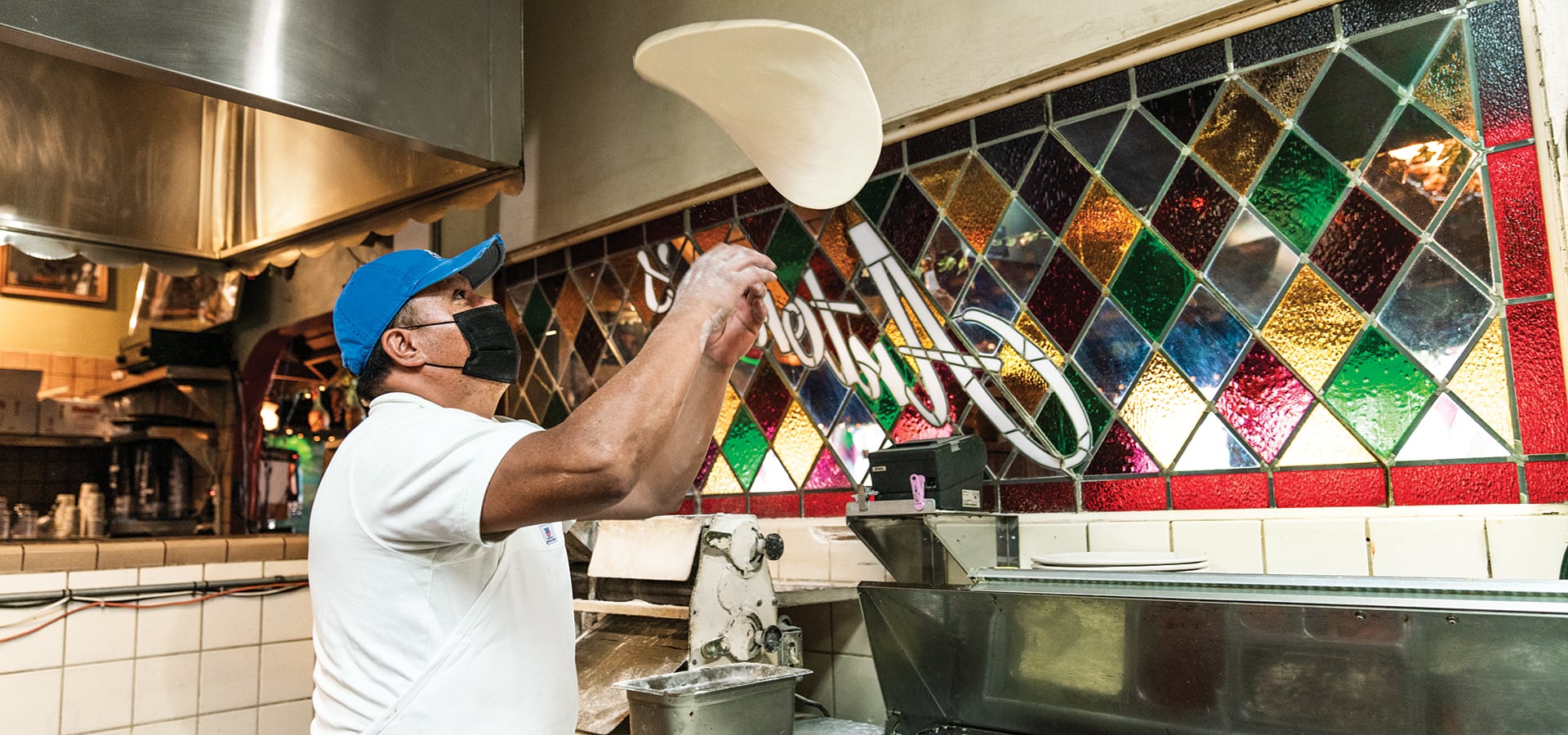
“I felt a sense of responsibility to help my dad,” she explains. “Back then when I came out here, I didn’t realize the sacrifices my dad made until I hit 42 myself.”
In her 32 years of running the business, Alexandra has dealt with everything from recessions to writers’ strikes. She says the pandemic is different, because instead of folks just tightening their belts for a period of time, there’s an extra challenge in getting customers to feel comfortable about going out to eat no matter how many safety precautions they take.
Christy Vega says that when she talked to her father, the founder of Casa Vega, Ray Vega, he said that he’d never seen anything wipe out businesses like this—and he’s 86 years old.
Many restaurateurs are wondering how they’ll adjust to outdoor dining this winter, and how the dip in usual seasonal profits will affect their businesses. However, in light of all the permanent closures, all these owners feel grateful that they’re still operating and believe that they’ll be able to weather this storm, taking it one day at a time and adapting to whatever hits them next.
“My employees and I have decided that we are doing the best we can and we want to give our customers our all. Every single employee feels like that, from me down,” Christy says. “We’re just trying to have a little fun and keep our spirits up. I think we’ve hit the bottom and hopefully from here on out it’s going to be a little bit easier.”
Join the Valley Community






